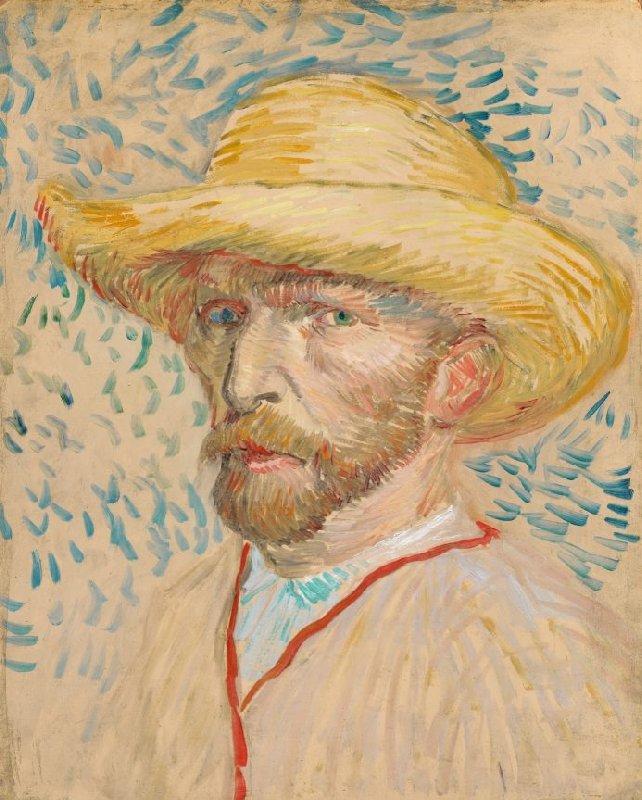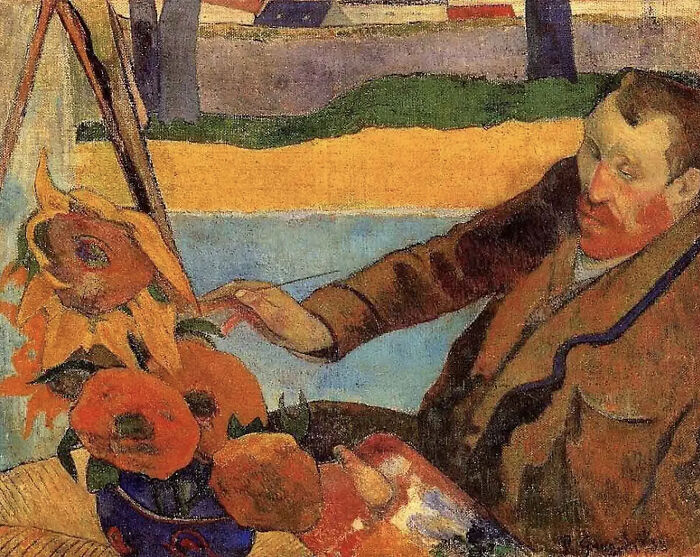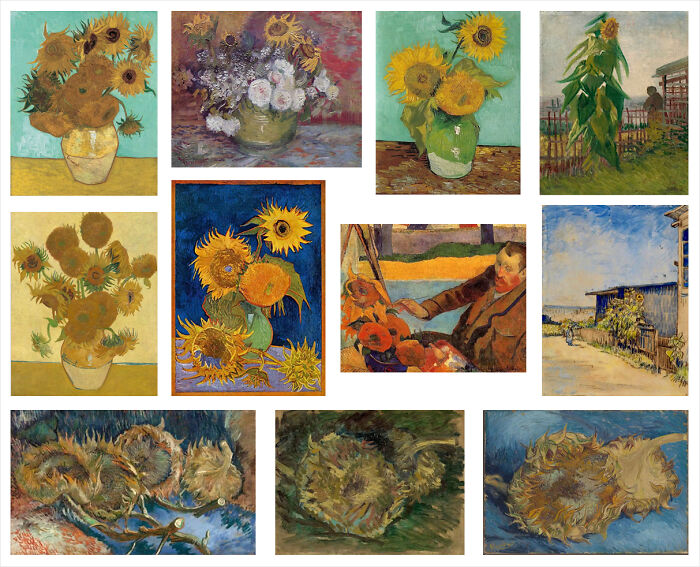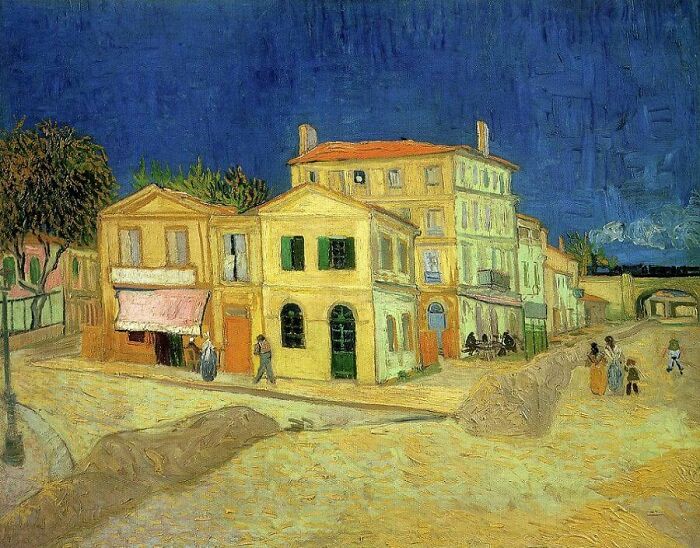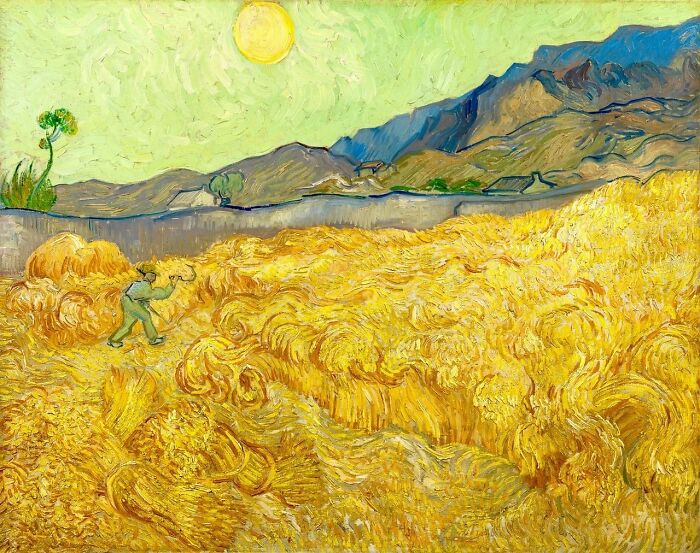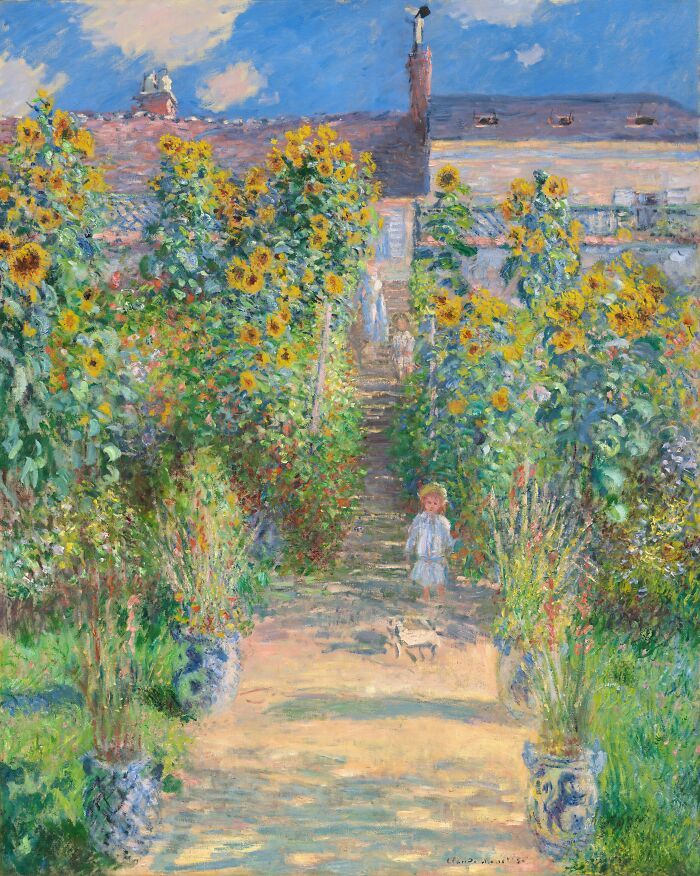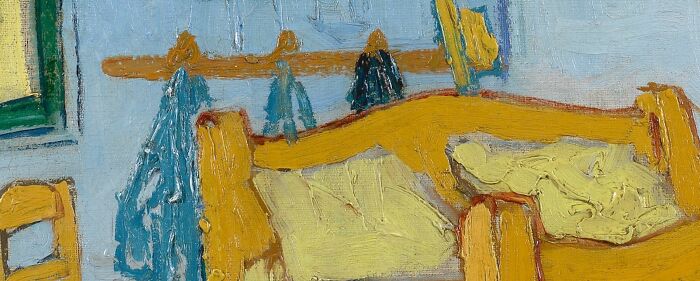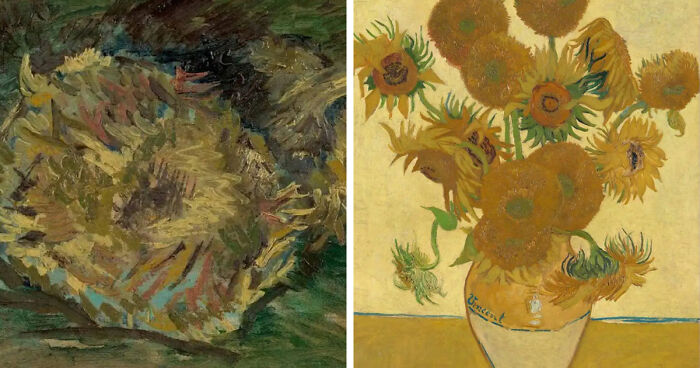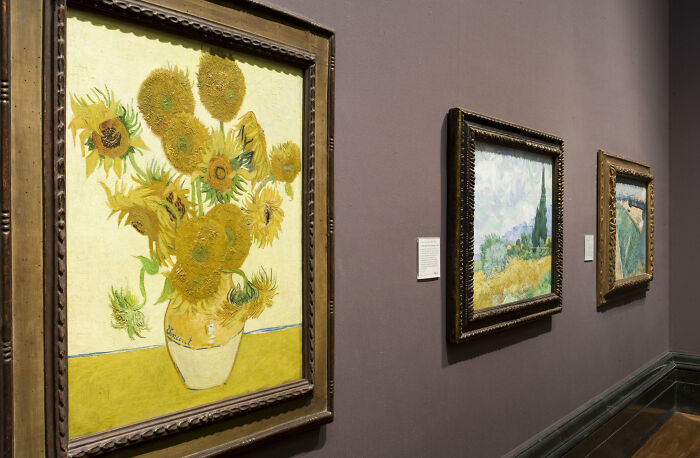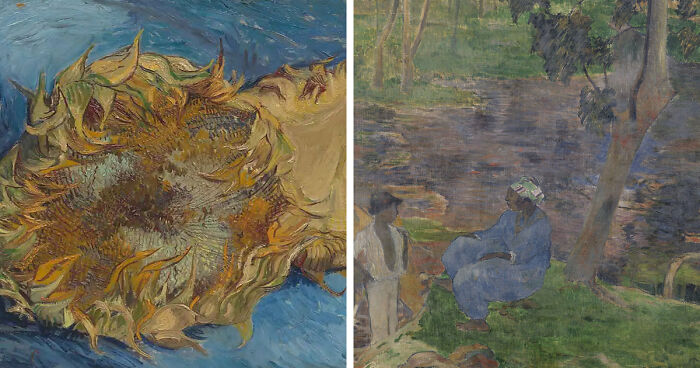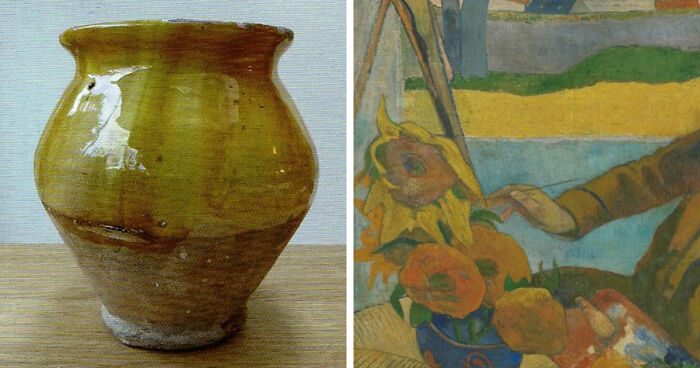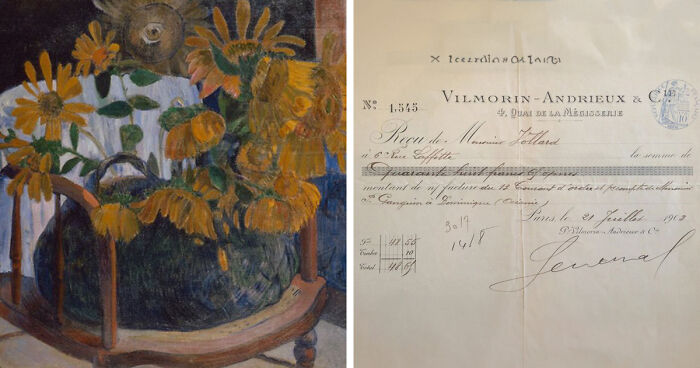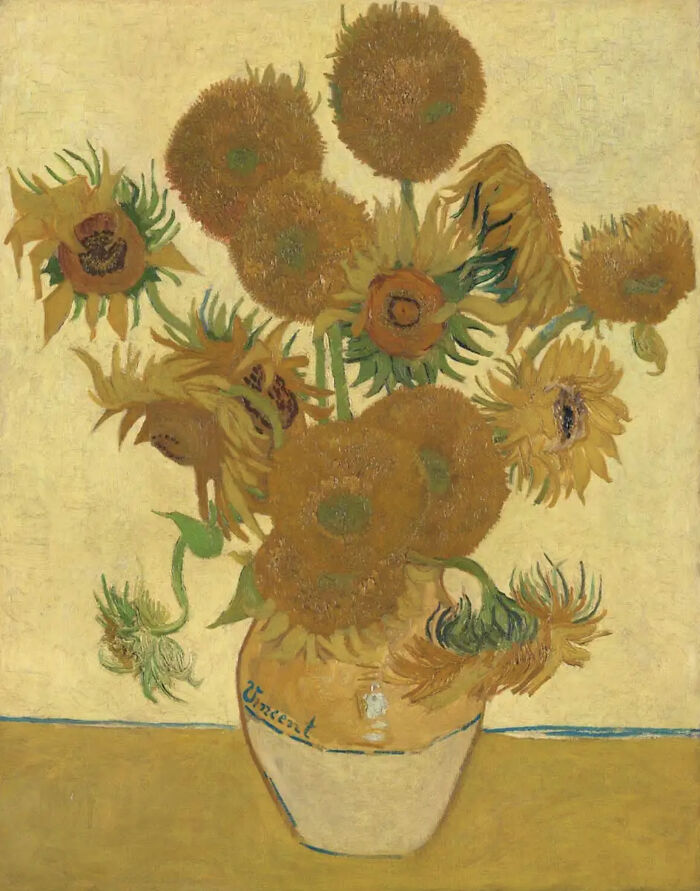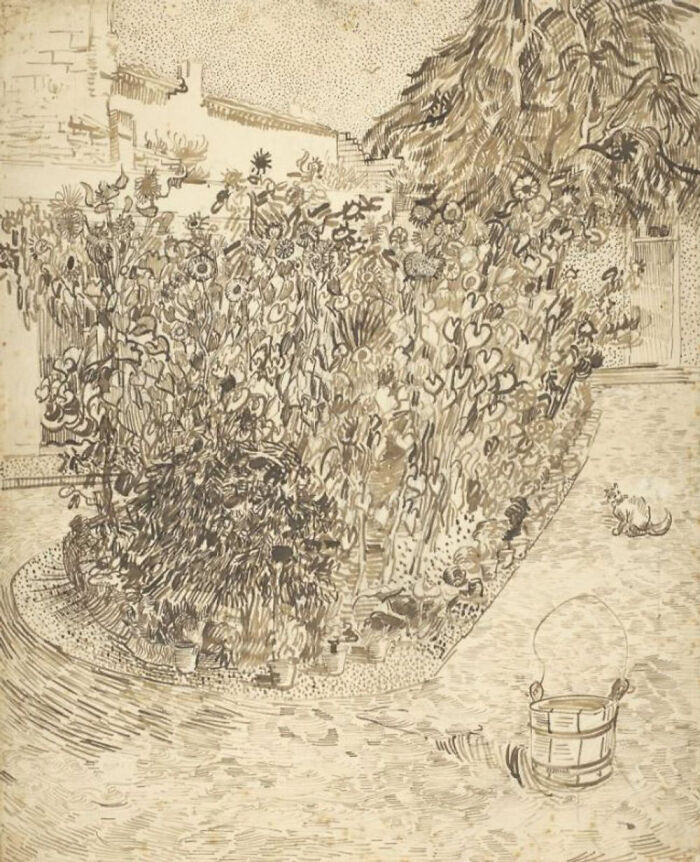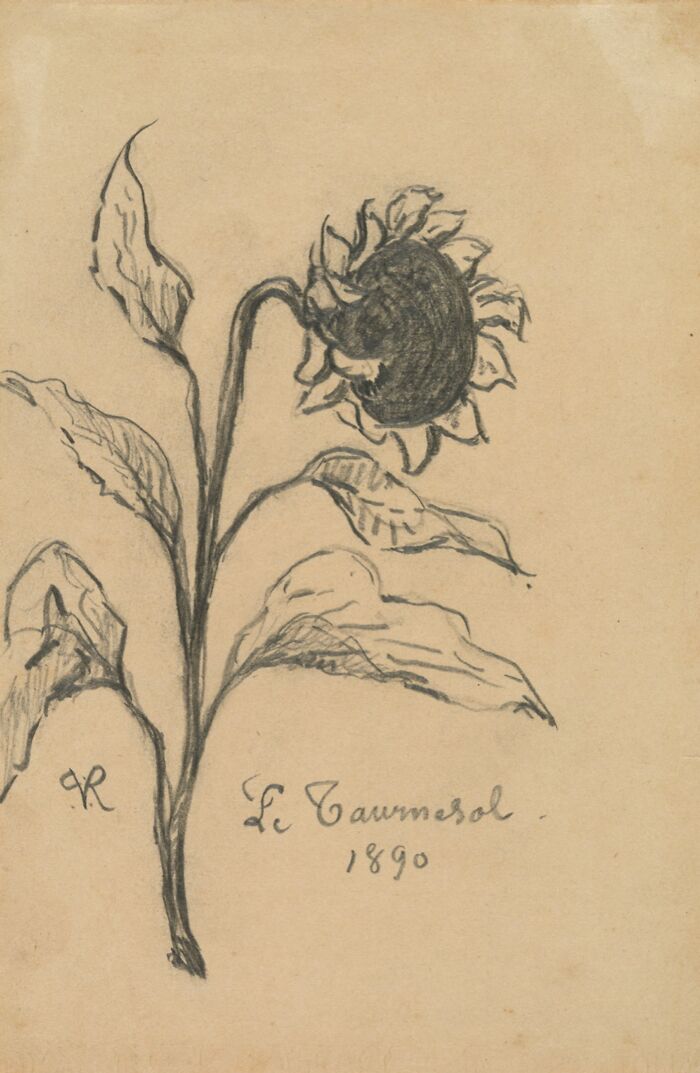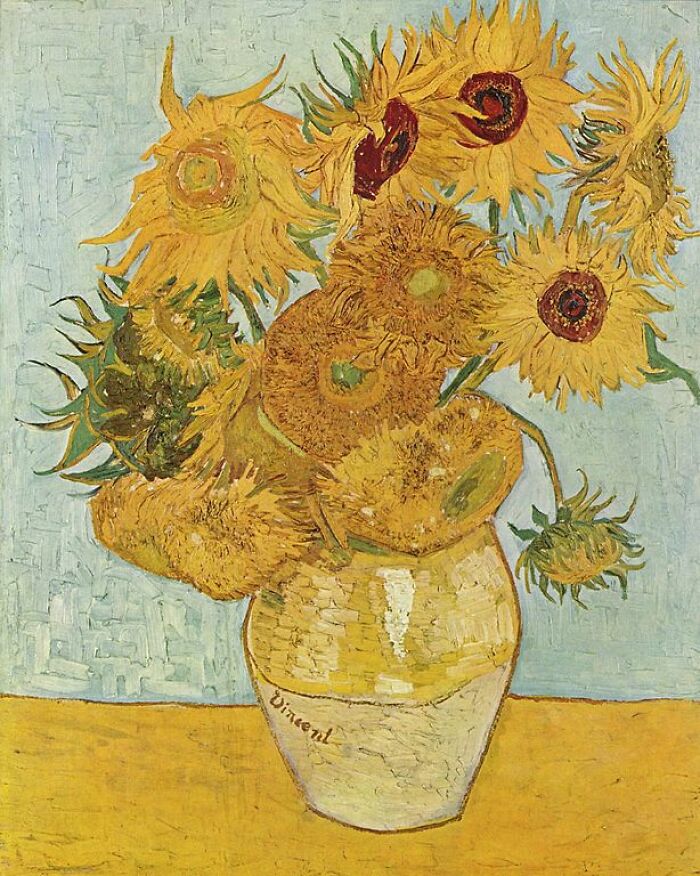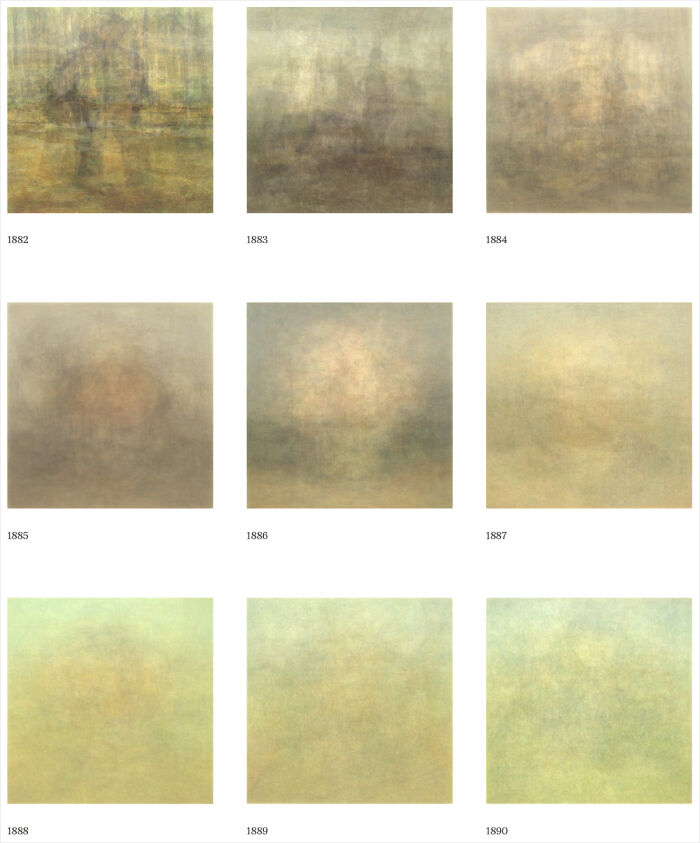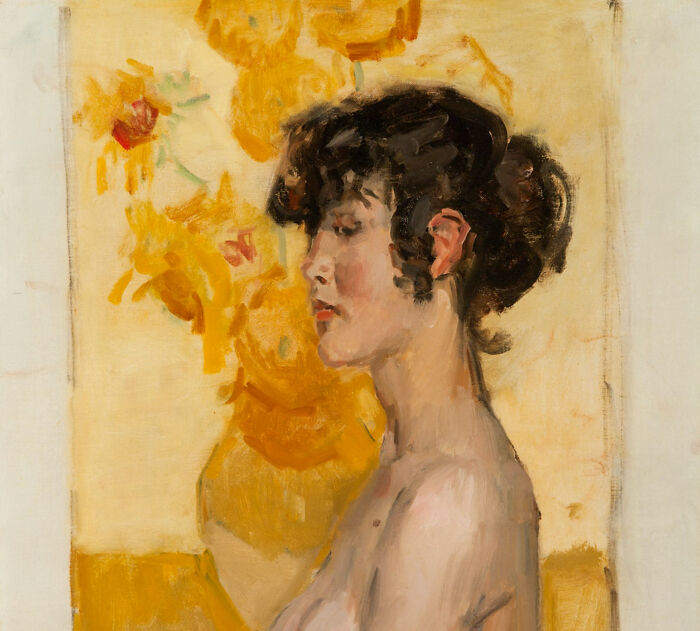Although the artist’s series of sunflowers had difficulties during his lifetime, in the contemporary world, they are definitely the most instantly recognizable artworks.
Image credits: Van Gogh Museum
Paul Gauguin, Vincent van Gogh painting Sunflowers (1888) , Van Gogh Museum, Amsterdam Report
wikipedia.org Report
Vincent van Gogh, The Yellow House (1888) , Van Gogh Museum, Amsterdam Report
The other painters at the time thought that sunflowers were coarse and unrefined but that was exactly what Vincent was attracted to: he saw eternal and fascinating beauty in those imperfections. For the artist, sunflowers also communicated gratitude and happiness, radiating with the energy and vitality of the sun.
Vincent Van Gogh, Wheatfield With a Reaper (1889) , Van Gogh Museum, Amsterdam Report
Claude Monet, The Artist’s Garden at Vétheuil (1881) , Ailsa Mellon Bruce Collection Report
He went on to do just that by painting at least 11 of the ones that we know of, some of which are now lost. Another interesting fact for you is that across 11 paintings, there are a total of 87 sunflowers.
Vincent van Gogh, The Bedroom (1888) , Van Gogh Museum, Amsterdam Report
Vincent van Gogh, Sunflowers Gone to Seed (1887) , Vincent van Gogh, Sunflowers (1888) Report
The National Gallery, London Report
Yellow was one of artist’s favourite ones. He used bright yellows early in his career, adding other hues like ochre and cadmium yellow later on.
Vincent van Gogh, Two Sunflowers (1887) , Paul Gauguin, On the Banks of the River, Martinique (1887) Report
Van Gogh Museum, Amsterdam Report
Monet painted a vase loaded with sunflowers about seven or eight years before Vincent van Gogh painted his series. Yet Monet focused more on the composition as a whole, and unlike Van Gogh, he painted the sunflowers with no sign of decay.
The flower that always turns towards the sun became a signature of the short yet truly remarkable career of Vincent van Gogh.
After the tragic day, Vincent’s doctor, Paul Gachet, made a symbolic drawing inscribed “Le Tournesol” (The Sunflower), as well as planting sunflowers on the grave, while as a tribute to his lost friend, fellow artist Paul Gauguin grew sunflowers in Polynesia as well.
Paul Gauguin, Still Life with Sunflowers on an armchair (1901) , Hermitage, St. Petersburg, Russia Report
Vincent van Gogh, Sunflowers (1888) , The National Gallery, London Report
Vincent van Gogh, Garden of a Bathhouse (1888) , Van Gogh Museum, Amsterdam Report
Therefore, I highly recommend perusing the rest of these 17 facts related to the sunny flower that brought an eternal light to the unbearably difficult and deeply painful life of Vincent van Gogh.
Dr Paul Gachet, The Sunflower (August 1890) , Van Gogh Museum, Amsterdam Report
Vincent van Gogh, Sunflowers (1888) , Neue Pinakothek München Report
Artnome Report
Isaac Israëls, Woman before Sunflowers by van Gogh (1917) , Museum de Fundatie Report
Follow Bored Panda on Google News!
Follow us on Flipboard.com/@boredpanda!
